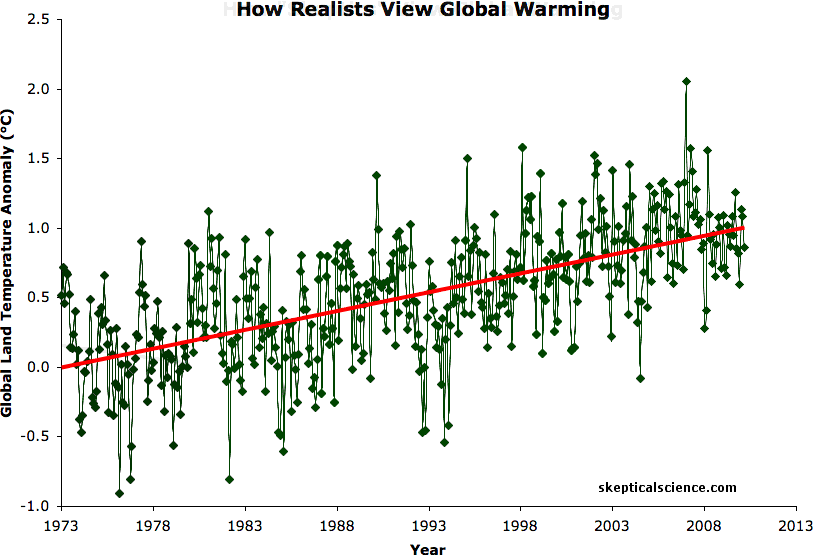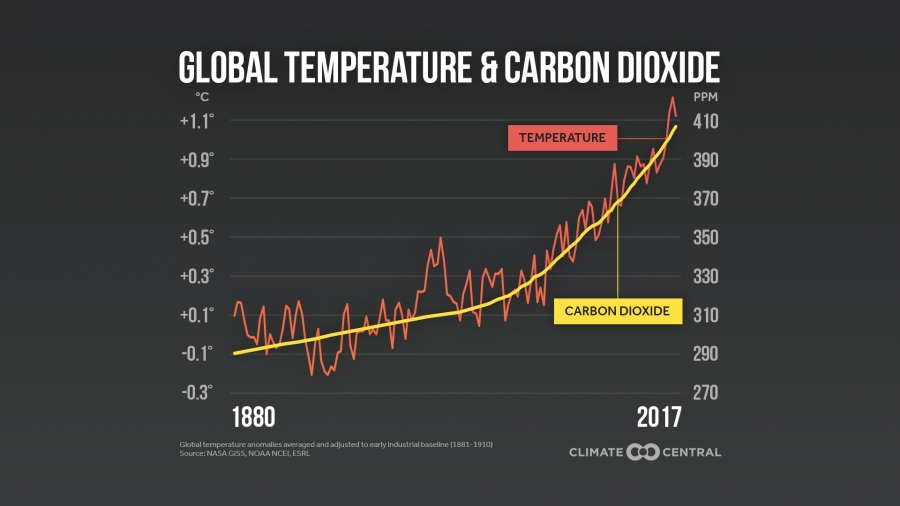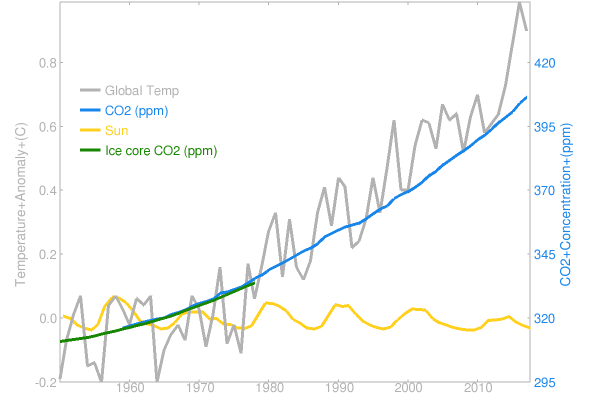The deadly heat waves, floods and fires occurring from Japan to the Middle East, and North America to Europe have clear links to human-caused climate change, according to climate scientists, and this summer's abnormal weather is just the beginning of what's in store for us in coming years.
Why it matters: The biggest near-term impacts of climate change on society come in the form of weather and climate extremes, so this summer illustrates the danger of even a relatively small amount of warming. So far, the planet has only warmed by close to 1°C, or 1.8°F, above preindustrial levels. We're on a trajectory to reach 3 degrees Celsius, or 5.4°F, by 2100.
The big picture: All-time high temperature records, along with heavy rainfall milestones have fallen as a warmer, wetter climate exerts its influence on day-to-day weather. Here are just a few of the records set so far:
In North America: Los Angeles set an all-time high temperature record of 111°F on July 6. Montreal, Canada also set its all-time high temperature record, during a deadly Quebec heat wave in early July. This week, Death Valley, California, has broken three straight daily records with a high of 127°F. Update, July 31, 2018: Death Valley is poised to set a record for the hottest month ever recorded on Earth, with an average temperature of 108°F, breaking last year's record by about half a degree.
Several locations are reporting that July was their warmest all-time month, including the normally temperate Caribou, Maine.
In Europe: Unprecedented heat led to a wildfire outbreak in Scandinavia, and record highs have been set all the way above the Arctic Circle this month. According to the U.N., Sodankyla, Finland hit 89.2°F, or 31.8°C, on July 17, which was an all-time record for that location.
On Sunday, Sortland, in far northern Norway, saw the temperature reach 87.8°F, or 31.0°C, which was an all-time high for any month at that location, according to meteorologist Etienne Kapikian.
July 27 was the hottest temperature on record in Amsterdam, at 34.8°C, or 94.6°F.
Remarkably, in northern Norway, Makkaur, set a new record high overnight low temperature of 25.2°C, or 77°F, on July 18.
Heat records have also fallen in the U.K., Ireland and France. In London, high temperatures hit 35°C on Thursday, and were forecast to potentially eclipse that on Friday. The U.K. is suffering through one of its driest years on record.
In Asia, Chinese media is reporting that "22 counties and cities" have had their hottest July on record. South Korea set its all-time high temperature record on Aug. 1, when the temperature soared to 40.7°C, or 105.2°F, in Hongcheon, according to the Korea Meteorological Administration.
It was the highest ever recorded across the country since the KMA started compiling the data in 1907. The previous high of 40 degrees Celsius was logged at the southeastern city of Daegu in North Gyeongsang province on Aug. 1 in 1942.
Temperature in the capital Seoul reached a daily high of 39.6 degrees Celsius in midday, marking the highest in 111 years. The previous high was 38.4 degrees Celsius recorded on July 24, 1994.
In the Middle East: Quriyat, Oman, which likely set the world’s hottest low temperature ever recorded on June 28, when the temperature failed to drop below 109°F, or 42.8°C.
In Africa: Ouargla, Algeria, may have set Africa's all-time highest temperature on July 5, with a reading of 124.3°F, or 51.3°C.
In Asia: Japan set a national temperature record of 106°F, or 41.1°C, in a heat wave that followed deadly floods.





















